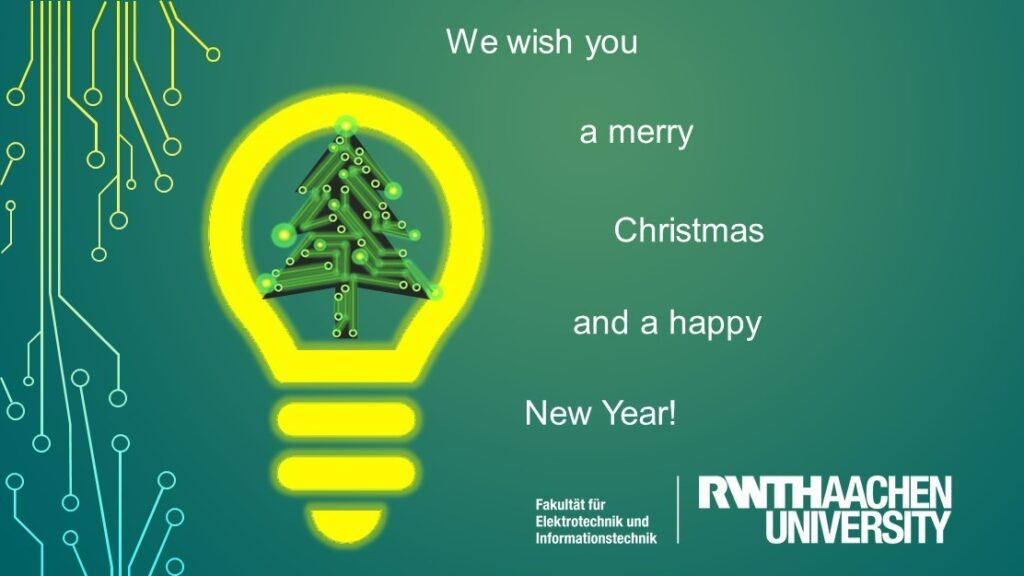Outstanding student feedback in university rankings
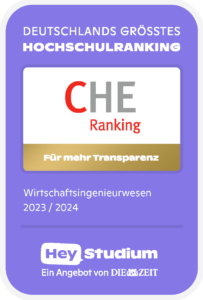 Students at RWTH Aachen University are particularly satisfied with their studies in industrial engineering, specializing in electrical engineering and information technology. This is the result of the annual university ranking by the Center for Higher Education Development (CHE). Among other subjects, the current edition evaluated interdisciplinary courses of study in industrial engineering, which is offered at RWTH in no less than four disciplines.
Students at RWTH Aachen University are particularly satisfied with their studies in industrial engineering, specializing in electrical engineering and information technology. This is the result of the annual university ranking by the Center for Higher Education Development (CHE). Among other subjects, the current edition evaluated interdisciplinary courses of study in industrial engineering, which is offered at RWTH in no less than four disciplines.
Based on a survey of around 120,000 students using a 5-star scale, prospective students receive first-hand information about the study conditions at the universities, as well as facts about studies, teaching and research.
In the most important category, the evaluation of the overall study situation, the rating of the Electrical Engineering and Information Technology department stands out particularly above the national average. It also belongs to the top group when it comes to supporting its students at the beginning of their studies. Finally, the student community is highly satisfied with many other study-related advantages, such as a very good IT infrastructure and the digital teaching elements.
Overall, almost all subjects at RWTH Aachen achieve above-average results.
The ranking results are also displayed in HeyStudium directly on the details page of the Electrical Engineering and Information Technology subject.
Project Sacred Sound: a long-gone sense of life in long-lost spaces.
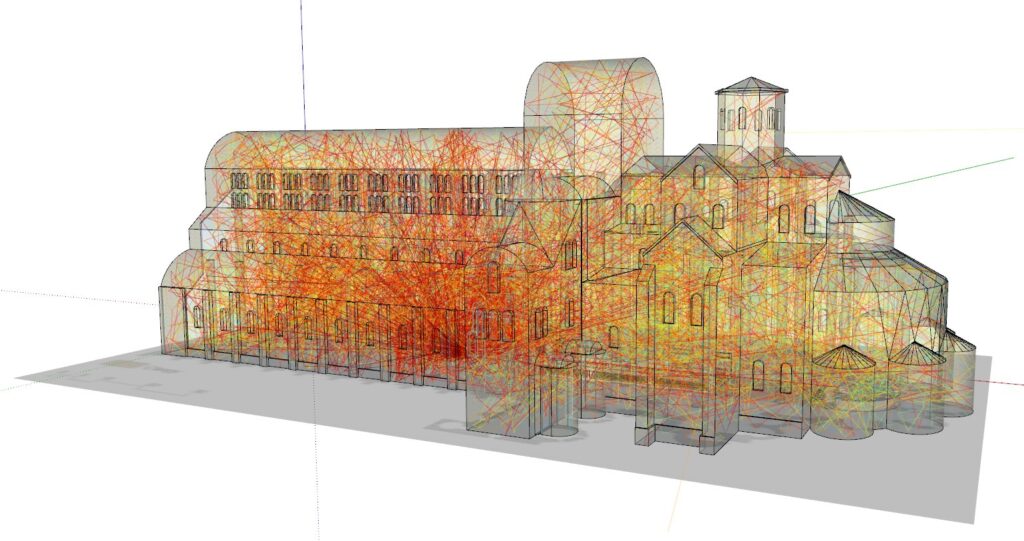
Ray tracing simulation in the acoustic 3D model of Cluny III (Image: Lukas Aspöck, CC-BY 4.0).
What was it like back in the Middle Ages? Experiencing history and feeling the spirit of the times – musicologist Professor Stefan Morent from the University of Tübingen, together with his project team and in cooperation with the Institute for Hearing Technology and Acoustics at RWTH Aachen University, is reconstructing the soundscape of this era. At the center of the music-historical experiment is the monastic church of Cluny III between 1130 and 1790.
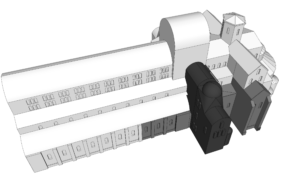
3D model of Cluny III. Black and dark gray parts show the still existing remains of the church (Image: Lukas Aspöck, CC-BY 4.0)
The Benedictine Abbey of Cluny was one of the most influential religious centers in Europe until the destruction of significant parts of the imposing building. Clergymen practiced their faith in its rooms: “Only through music and if the liturgy was performed flawlessly could a connection to God be established,” Professor Morent explains the monks’ conviction. But how did their singing sound in the spacious and magnificent halls?
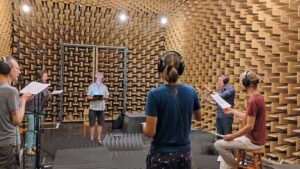
Ensemble Ordo Virtutum during the recording session in the anechoic half-room of the institute (Photo: Lukas Aspöck, CC-BY 4.0)
Cluny III is a virtual version of the historical original, which enables a room-acoustic computer simulation. For this purpose, medieval choral songs of the ensemble Ordo Virtutum were recorded in IHTA’s laboratory – an anechoic room without reverberation. In real time, the singers experienced the reflections of the virtually constructed church space via headphones. This auralization makes it possible to embed the musical compositions in the architectural-historical context of their creation. But what role does the interaction of architecture and sound play for future spatial concepts? To answer this question, the recordings will be analyzed from a musicological point of view in further project steps in order to investigate the influence of architecture on the musical performance.
Excellent placement in global university ranking

© Kurt Beyer
In electrical engineering, RWTH Aachen is one of the three best German universities. This is the result of the internationally highly regarded QS Ranking by Subjects of the British information service provider Quacquarelli Symonds. Presented in its latest version, the subject ranking is based on various criteria that are weighted according to subject. An online reputation survey among university graduates and employers accounts for between 40 and 100 percent of the total points and is considered the most important indicator. Citations, which scientific papers from universities receive on average, account for up to 60 percent. For some engineering and natural science subjects, international research networks are also taken into account.
The Aachen University of Excellence was able to place itself on the winner’s podium in many subjects throughout Germany and is also convincing in an international comparison. In ten subjects, it placed among the 100 best worldwide. RWTH did particularly well in the subjects of mining engineering with 15th place and mechanical engineering with 19th place.
For more information: www.topuniversities.com
“Hex-Hex”: Text – Thesis written!

The right magic formulas are taught in the courses of the “Schreibwerkstatt E-Technik”. The face-to-face course offers bachelor’s and master’s students at the Faculty of Electrical Engineering and Information Technology customized preparation for writing their upcoming seminar papers or dissertations. Participants benefit from acquired basic knowledge and writing strategies, which can be further developed in an individual online consultation. Upon successful participation, students earn a certificate and 3 CP, which can be credited towards elective credits.
International students must prove a German language level of at least C1.2 as a participation requirement for the course. The online writing consultation takes place in either German or English.
Registration deadline: March 27 – April 3, 2023
Dates:
| Group 1 02.84000 |
Group 2 02.84000 |
| Wednesdays April 19, 2023 Mai 3, 2023 Mai 17, 2023 June 6, 2023 each from 2.30 to 5.30pm |
Wednesdays April 26, 2023 Mai 10, 2023 Mai 24, 2023 June 21, 2023 each from 2.30 to 5.30pm |
Registration is via user account at Language Center.
Contact for inquiries: schreibzentrum@sz.rwth-aachen.de
Top placements in international ranking
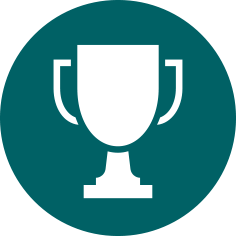
The portal Research.com informs in the newly published ranking that the Electrical Engineering and Information Technology of the RWTH achieved the 2nd place in the Germany-wide comparison. Internationally, RWTH ranks 65th in this discipline.
Research.com evaluates the frequency of citations of scientific articles and other publications for the ranking. Data from the OpenAlex and CrossRef databases are used for the evaluation. Researchers are ranked using the D-index, a variation of the H-index, which measures citations to their scientific papers within a discipline. All those who achieve a D-index of at least 30 are included in the rankings. The sum of the D-indexes of all listed scientists of a university is then decisive for its placement in the university ranking.
Accordingly, the following RWTH Electrical Engineering and Information Technology professors have qualified for the ranking:
- Dirk Uwe Sauer from the Chair of Electrochemical Energy Conversion and Storage Systems Engineering.
- Rik W. De Doncker from the Chair of Power Electronics and Electrical Drives
- Heinrich Meyr from the Chair for Distributed Signal Processing
- Antonello Monti from the Institute for Automation of Complex Power Systems
- Max Lemme from the Chair of Electronic Components AMICA – Advanced Microelectronic Center Aachen
- Steffen Leonhardt from the Chair of Medical Information Technology
- Petri Mahönen from the Chair and Institute of Networked Systems
- Rainer Leupers from the Chair of Software for Systems on Silicon
Into 6G era with innovative measurement technology
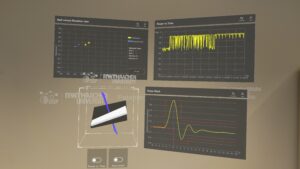
The team from the Chair of Distributed Signal Processing around Prof. Dr. Haris Gačanin will provide insights into the world of tomorrow at Mobile World Congress in Barcelona on February 27. Together with industry partner Rohde & Schwarz, they will present the interactive and immersive visualization of measurement technology using augmented reality. The “XR-Wireless” technology developed as part of the 6GEM research project is used for this. The partners are meeting the challenge of developing innovative test and measurement technology that masters the acceleration of new technology towards 6G.
Encouraging women to take up MINT professions – support for ZDF heute journal
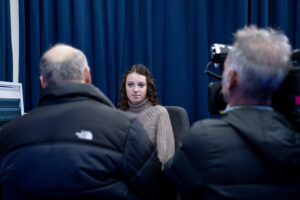
BA student Helena in an interview with the ZDF heute journal team. Photo: C. Antweiler
At the end of January, the team from ZDF heute journal visited the Institute for Communication Systems at RWTH Aachen University for a report. The report provides insights into the topic of “women in MINT subjects”, which are sometimes chosen even less by women and girls, such as mathematics, computer science, natural science and technology. Editor Peter Böhmer from the North Rhine-Westphalia State Studio researched the reasons for the low quota of women at RWTH Aachen University and what approaches could be taken to change this.
Through interviews with various female RWTH students, including our BA student Helena, as well as with Univ. Prof. Dr. rer. nat. Aloys Krieg, Prorector for Teaching, the heute journal team was able to gain an impression. The Institute for Communication Systems and a lecture by Prof. Peter Jax provided the pictorial framework for the report.
You can find the report in the ZDF Mediathek.
Gold and bronze at the 2023 Innovation Awards ceremony
Congratulations to all winners of this year’s Innovation Awards for pioneering university projects whose contribution particularly enriches the Aachen region as a location for innovation.
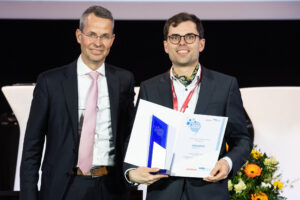
Professor Malte Brettel and award winner Dr.-Ing. Moritz Joseph from Team Neureka.
Gold went to the team Neureka around Professor Rainer Leupers from the Chair of Software for Systems on Silicon with a development kit on hardware – and software level for neuromorphic AI chips in edge applications.
Neuromorphic computing systems replicate the way the human brain works, as they combine computation and memory units and thus enable an enormous increase in performance in artificial intelligence. Neuromorphic chips already available today promise tens to hundreds of times improved energy efficiency, latency, and space efficiency. Neureka has successfully met the challenge of making the complicated system design of this technology accessible to industry.
The Hardware Development Kit integrates purchased neuromorphic chips into an existing computing system, allows validation of neuromorphic hardware, and is a development platform for market-ready AI devices. The software development kit enables easy programming and simulation of AI applications on neuromorphic systems. Software developers can thus bring low-risk AI applications to disruptive neuromorphic hardware and reduce the energy consumption of AI.
Customers of both developments are industrial users, mobile device manufacturers and smart city IoT device providers.
Silver went to an electromagnetically heatable nanomodified stent for the treatment of hollow organ tumors, developed in collaboration by Ioana Slabu of the Institute of Applied Medical Engineering and Benedict Bauer of the Institute of Textile Engineering.
Bronze went on the one hand to the team working with Mathias Bode from the Institute of Technical Combustion in cooperation with the Jülich Supercomputing Centre. Their software-as-a-service platform JuLES is considered a key technology for the climate-neutral transformation of industrial processes.
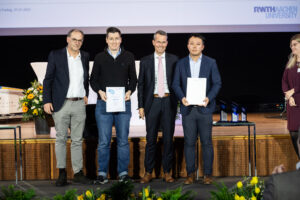
Professor Heinz Pitsch with Mathis Bode to the left and Weihan Li to the right after the handover of the certificate by Professor Malte Brettel.
On the other hand, the team from the Chair of Electrochemical Energy Conversion and Storage Systems Technology, headed by Professor Dirk Uwe Sauer, was also pleased to receive bronze. The award honored the development of a digital battery twin to increase efficiency and safety in the application field.
Lithium-ion batteries are emerging as the technology for energy storage, especially in the field of electromobility, due to their low cost and high energy density. However, their performance degrades over time. Condition monitoring and prediction of battery aging not only benefits safety, maintenance, and asset optimization, but is also the starting point for technical and economic analysis of potential second-life applications.
The developed cloud battery management system covers seven key functions to control the entire life cycle of batteries, enabling online monitoring of aging, prediction of aging progression, and optimization of operation strategy to limit aging.
The innovation contributes to the acceleration of the energy transition and the electrification of transport. It also opens up commercial opportunities for a wide range of industries, such as digital certificates for batteries, battery warranties and insurance, and predictive and timely warning of safety-critical conditions.
New research center CARL ushers in a new era
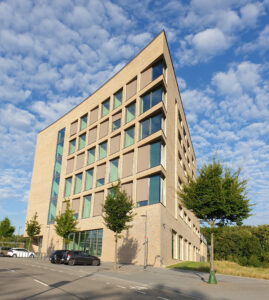
CARL research building as a 6-story new building with a sloping roof, standing in solid construction in research cluster F along Campus Boulevard.
We congratulate the Institute for Power Electronics and Electrical Drives on moving into the new research building CARL – Center for Ageing, Reliability and Lifetime Prediction of Electrochemical and Power Electronic Systems – on the Melaten campus.
Three large laboratory halls as the heart of CARL and an interdisciplinary research network of ten core professorships, about 20 other chairs and institutes of RWTH Aachen and Forschungszentrum Jülich will now make it possible to push groundbreaking research work on battery aging and lifetime prediction of power electronics from a holistic perspective. “We want to understand down to the atomic and crystal level how energy storage devices function and respond to different requirements,” says Professor Dirk Uwe Sauer of ISEA, explaining the fundamental idea behind CARL.
Test benches for load and environmental simulations are set up in the first laboratory area. For example, this involves electrical, mechanical, chemical or climatic influences on the materials and systems of batteries and power electronics. Here, aging processes are run and analyzed in fast motion, as it were, in order to be able to investigate their causes in detail.
The second laboratory area deals with the construction of prototypes. The performance of entire systems or even individual components is to be examined here in order, for example, to be able to rule out material or design faults at an early stage.
Finally, the third laboratory area is dedicated to physical-electrochemical analysis. With the aid of an analysis chain for structural and material investigations, which will include a state-of-the-art computer tomograph with unprecedented resolution, the structures of the material can be examined and analyzed down to atomic resolution.
Consideration will be given to both the end user and the developer of machines and materials for the production of batteries and power electronics. “With our research results, we can help accelerate development cycles and ultimately save money by optimally configuring systems,” says Professor Sauer. This is because the question of service life is essential for economic considerations. For example, it is important for car manufacturers to be able to estimate depreciation periods, warranty services and reliability as part of functional safety.
Christmas greetings and closing times over the holidays
